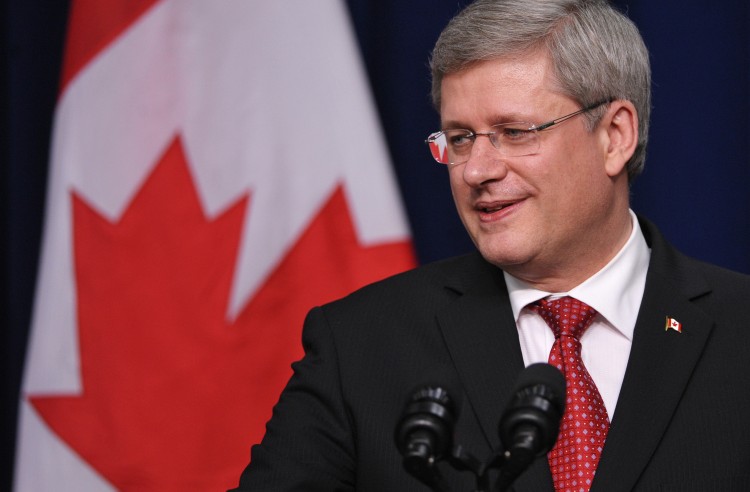News Analysis
As Prime Minister Stephen Harper prepares to talk energy in China, the Chinese regime faces increasing unrest that could give Canada a strong position to push for human rights.
The Harper government has pledged to make religious freedom a priority in its international affairs agenda, arguing freedom of religion can act as an umbrella to protect other rights.
In a speech in London, England, on Monday, Minister of Foreign Affairs John Baird strongly defended those rights and blasted the Chinese regime’s abuses.
‘Abhorrent Acts’
In some of his strongest public comments yet, Baird slammed Chinese authorities for ongoing repression of religious groups.
Speaking to the Royal Commonwealth Society in London, Baird included the Chinese regime among the world’s repressors of religious freedom, something Canada and the U.K. should stand against.
After re-affirming Canada’s commitment to “freedom, democracy, and rule of law,” Baird went on to tell his audience that freedom-loving nations could not be selective in which human rights they defended.
In his prepared remarks, Baird said Roman Catholics and Christian clergy face raids and detention in China while Falun Gong practitioners, Tibetan Buddhists, and Uyghur Muslims face harassment and physical intimidation.
While his remarks fell far short of reflecting the realities of imprisonment, torture, and killing that the three latter groups face, he did condemn their persecution.
“These abhorrent acts fly in the face of our core principals, our core values,” he said.
Baird directed his comments at a U.K. audience, likely partly in hopes of appeasing the human rights crowd in Canada. But it is certain the Chinese regime will take note.
Increased ‘Mass Incidents’
But while the regime tends to respond to critics of its human rights abuses with threats about damaged bilateral relations or accusations of interfering in its internal affairs, Beijing has less room to bluster than in previous years.
Though the regime has continued to focus its efforts on economic development, its social contract with the Chinese people appears to be unravelling. That contract stakes the Chinese Communist Party’s (CCP) legitimacy on sustained economic development.
So far this year, the regime has faced an upswing in labour protests and other “mass incidents” from an increasingly bold Chinese citizenry impatient with corruption and abuse.
Tensions in China have been mounting for years. In 2010 the regime spent more on its internal policing than its defence budget, which has attracted international attention for its rapid increase, in efforts to address the problem. A report last March from the Chinese Finance Ministry continued that pattern for 2011, with 548.6 billion yuan (C$87.2 billion) budgeted for internal security versus 533.5 billion (C$84.7 billion) slated for national defence.
The spending is a direct response to a rapid rise in the number of “mass incidents” such as protests and strikes, which doubled to 180,000 over four years from 2006 to 2010, wrote Sun Liping, a professor of sociology at Beijing’s Tsinghua University, in a Feb. 25 article in the Economic Observer.
That unrest hasn’t gone unnoticed. U.S. Ambassador to China Gary Locke told NPR’s Steve Inskeep last Wednesday that the situation in China is “very very delicate,” though he thought it would take a significant internal event to cause major upheaval.
“I do believe that there is a power of the people, and there is a growing frustration among the people over the operations of government, corruption, lack of transparency, and issues that affect the Chinese people on a daily basis that they feel are being neglected,” said Locke.
Locke paid special notice to the situation in the southern Chinese city of Wukan.
“[The people] basically prevented anybody from the outside from coming in and brought the city to a halt and forced the Chinese government communist leaders to send people to address their grievances,” he said.
The fact that a local population effectively ousted the regime’s authorities and forced the Chinese Communist Party to address its grievances is unprecedented, and almost certainly the result of foreign media attention, noted Michael Young in an op-ed published in The Epoch Times last week. Some observers have credited the upswing in protests to the success in Wukan.
Beijing’s Difficult Position
Dissent has been growing for years in China, with over 100 million Chinese people declaring their withdrawals from the Party and its affiliated organizations.
The regime has tried to quash that dissent with increased repression, something human rights groups have been claiming since the run-up to the 2008 Beijing Games.
“The human rights record of China has been going in the wrong direction,” said Locke, echoing comments made by Amnesty International and others.
With the international community aware of growing dissent in China and taking notice of the regime’s heavier hand, the CCP finds itself in the difficult position of trying to appease internal unrest while shoring up legitimacy with the international community.
Chinese state-controlled media normally try to frame visits with foreign leaders as evidence of international acknowledgement of the CCP’s achievements in China, or proof of the Party’s ascendency.
But if Baird’s comments reflect a return of the Conservatives’ assertiveness in its dealings with Beijing, Harper could achieve much beyond touting the benefits of Canadian oil.
If there was ever a time to press the Chinese regime on its sustained crackdown on basic freedoms, it’s now. If there was ever a time when being a friend to the Chinese regime may look like being an enemy of the Chinese people, it may also be now.






